Communal Loss Adaptation Project
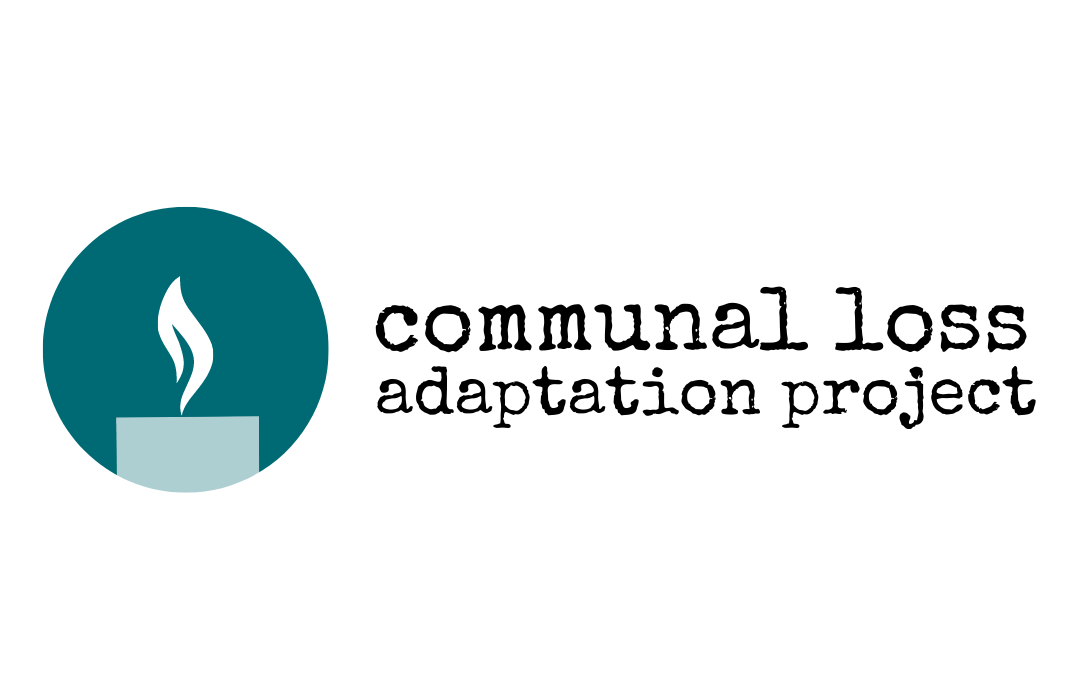
Grief is a normal response to loss. Being with an understanding community can help bring comfort and healing to mourners. This group launched in 2022 with two cornerstone programs:
- A queer Jewish spiritual bereavement support group for people who are mourning individual losses, in an era of pandemic and climate crisis. These losses do not have to be pandemic or climate-related but we will tend to individual grief within the context of this era of vast global change.
-
An upcoming memorial project to honor disabled people who have died in the COVID-19 pandemic.
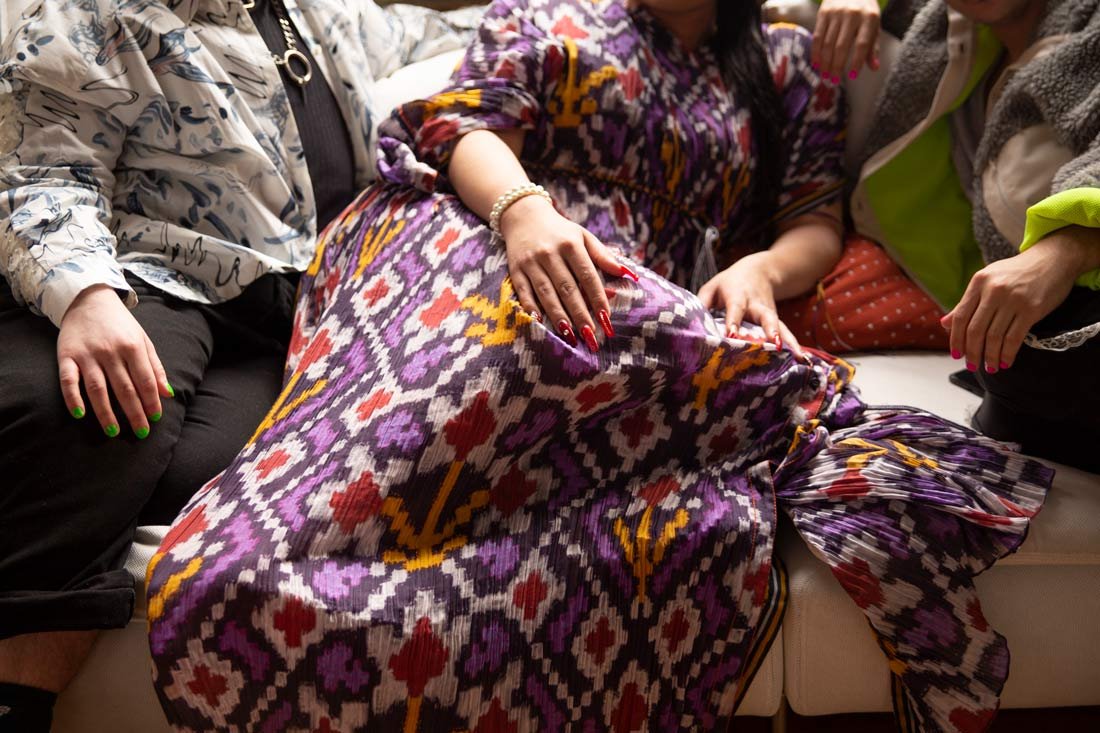
Learn More
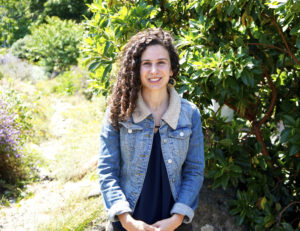 Chloe Zelkha (she/her): is a rabbinical student at RRC in Philadelphia. Previously, she worked as a community organizer, educator, and chaplain at organizations like The Food Project, Urban Adamah, JOIN for Justice, Centre College, and UCSF Mission Bay Hospital. She is the co-founder of the Covid Grief Network, a organization offering free grief support and community to young adults who’ve lost someone to COVID. She most adores running residential grief retreats for people in their 20s and 30s who’ve lost parents, siblings, partners, and dear friends.
Chloe Zelkha (she/her): is a rabbinical student at RRC in Philadelphia. Previously, she worked as a community organizer, educator, and chaplain at organizations like The Food Project, Urban Adamah, JOIN for Justice, Centre College, and UCSF Mission Bay Hospital. She is the co-founder of the Covid Grief Network, a organization offering free grief support and community to young adults who’ve lost someone to COVID. She most adores running residential grief retreats for people in their 20s and 30s who’ve lost parents, siblings, partners, and dear friends.
 Donaji Lona: (her/she) integrates her Biniza (Zapotec) indigenous ancestral legacy of interdependence, resilience, resistance, and community struggle to the organic process of transformation and integrates politicized somatics in her work with clients. She has been a long-term community organizer for immigrant rights and house workers’ rights, and public transportation (POWER). She brings her commitment to social justice to her politicized healing work. She’s been a teacher and practitioner, she has been in the field of somatics for over ten years. Her experience as the mother of two sons, one with Down syndrome that suffered from recurrence Leukemia 4 different times (now a beloved ancestor since 2017), has defined her vision of justice and care for life.
Donaji Lona: (her/she) integrates her Biniza (Zapotec) indigenous ancestral legacy of interdependence, resilience, resistance, and community struggle to the organic process of transformation and integrates politicized somatics in her work with clients. She has been a long-term community organizer for immigrant rights and house workers’ rights, and public transportation (POWER). She brings her commitment to social justice to her politicized healing work. She’s been a teacher and practitioner, she has been in the field of somatics for over ten years. Her experience as the mother of two sons, one with Down syndrome that suffered from recurrence Leukemia 4 different times (now a beloved ancestor since 2017), has defined her vision of justice and care for life.
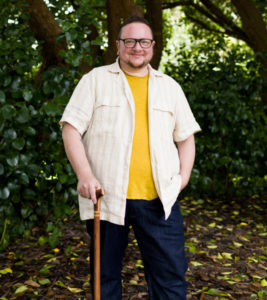 Elliot Kukla (he/they): Elliot is a rabbi, chaplain, author, artist, and activist. His writing appears in many places including The Forward, The Body is Not an Apology, and regularly in The New York Times and Sunday Review. He was the first openly transgender rabbi ordained by a denomination in Judaism, Hebrew Union College in Los Angeles, in 2006. He is currently the founder and director of the Communal Loss and Adaption Project (a project of Svara). He lives on Oholone Land (otherwise known as Oakland, CA) with his partner, their kid, chosen family, a Boston Terrier, a cat named Turkey, and a few hundred house plants.
Elliot Kukla (he/they): Elliot is a rabbi, chaplain, author, artist, and activist. His writing appears in many places including The Forward, The Body is Not an Apology, and regularly in The New York Times and Sunday Review. He was the first openly transgender rabbi ordained by a denomination in Judaism, Hebrew Union College in Los Angeles, in 2006. He is currently the founder and director of the Communal Loss and Adaption Project (a project of Svara). He lives on Oholone Land (otherwise known as Oakland, CA) with his partner, their kid, chosen family, a Boston Terrier, a cat named Turkey, and a few hundred house plants.
India Harville (she/her): Founder of Embraced Body, is an African American femme, queer, disabled inclusive dancer, somatic bodyworker, and disability justice activist. India’s work centers the body as an often underestimated pathway to decolonize ourselves so we can embody social justice more deeply. India has spoken about disability justice and somatics in a wide variety of settings including college campuses and social justice organizations. India holds a BA in psychology from New College of Florida and a MA in Integrative Health Studies from the California Institute of Integral Studies. To learn more please visit www.embracedbody.com.
Jess Belasco (she/they): I run the Disability Justice Torah Circle & someday will graduate from JTS rabbinical school. When I’m not doing professional things, I like vegetarian cooking, cats, and nature adventures.
Julia Watts Belser (she/her): is a rabbi, scholar, and spiritual teacher who works at the intersections of disability studies, queer feminist Jewish ethics, and environmental justice. She is an associate professor of Jewish Studies at Georgetown University, Senior Research Fellow at the Berkley Center for Religion, Peace, and World Affairs, and core faculty in Georgetown’s Disability Studies Program. A longtime advocate for disability and gender justice, she currently directs an initiative on Disability and Climate Change. When she’s not teaching or writing, she’s a passionate wheelchair hiker and a lover of wild places.
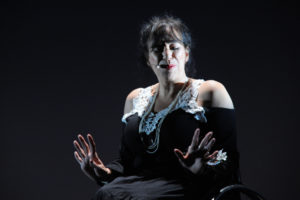 Maria R. Palacios (she/her): is a disability activist, poet, artist, author and workshop facilitator whose message of collective power is a reflection of the survival and resilience of disabled people. In the artistic world, Maria is known as the Goddess on Wheels.
Maria R. Palacios (she/her): is a disability activist, poet, artist, author and workshop facilitator whose message of collective power is a reflection of the survival and resilience of disabled people. In the artistic world, Maria is known as the Goddess on Wheels.
 May Ye (she/her): is a Chinese-American Jew. She is entering her sixth and final year at the Reconstructionist Rabbinical College in Philadelphia, PA. She recently moved to New Haven, CT, where she will be completing her studies remotely as she works with Mending Minyan and as a chaplain intern at Yale New Haven Health. As a rabbinical student, May has worked as a rabbinic intern at Tzedek Chicago, for Aurora Levins Morales on new liturgy that centers the voices of indigenous Jews and Jews of Color, and as a climate justice fellow with POWER, an interfaith social justice organization in Philadelphia. She is the founder of the Person of Color Havurah at Kol Tzedek Synagogue and of Min Hameitzar: A National Network of Jews of Color Havurot. May organized with Jewish Voice for Peace (JVP), Philadelphia chapter, as a member of the steering committee and chair of the ritual committee and she is honored to sit on JVP’s national rabbinical council. She also volunteers as a movement chaplain.
May Ye (she/her): is a Chinese-American Jew. She is entering her sixth and final year at the Reconstructionist Rabbinical College in Philadelphia, PA. She recently moved to New Haven, CT, where she will be completing her studies remotely as she works with Mending Minyan and as a chaplain intern at Yale New Haven Health. As a rabbinical student, May has worked as a rabbinic intern at Tzedek Chicago, for Aurora Levins Morales on new liturgy that centers the voices of indigenous Jews and Jews of Color, and as a climate justice fellow with POWER, an interfaith social justice organization in Philadelphia. She is the founder of the Person of Color Havurah at Kol Tzedek Synagogue and of Min Hameitzar: A National Network of Jews of Color Havurot. May organized with Jewish Voice for Peace (JVP), Philadelphia chapter, as a member of the steering committee and chair of the ritual committee and she is honored to sit on JVP’s national rabbinical council. She also volunteers as a movement chaplain.
Naomi Ortiz (they/she | elle/ella): is a Poet, Writer, Facilitator, and Visual Artist whose intersectional work focuses on self-care for activists, disability justice, climate action, and relationship with place. Ortiz is the author of Sustaining Spirit: Self-Care for Social Justice (Reclamation Press), a non-fiction book exploring self-care tools and strategies for diverse communities. Their new book, Rituals for Climate Change: A Crip Struggle for Ecojustice (forthcoming from Punctum books), expands on and complicates who is seen as an environmentalist and reimagines relationship with the land. Ortiz is a 2022 Disability Futures Fellow, 2021-2023 Border Narrative Grant Awardee for the multidisciplinary project, Complicating Conversations, and a 2019 Zoeglossia poetry fellow. They are a Disabled Mestize living in the Arizona U.S./Mexico borderlands. Website: www.NaomiOrtiz.com
Noah Cochran (they/them): I am a queer Jewish therapist living on Nipmuc & Pocomtuc land of Western Massachusetts. Currently a therapist at the Smith College Counseling Center, I’m guided by a belief in the healing power of relationships. Beyond my clinical work, I support the creation and facilitation of grief spaces as a co-founder of the COVID Grief Network, a mutual aid network created in 2020 to offer free grief support for folks in their 20s and 30s who experienced a covid loss. I have also facilitated immersive grief retreat experiences and am a host with The Dinner Party, an organization that builds community amongst grieving young adults. Beyond these roles, I am an avid reader, a fledgling woodworker, and the proud cat parent of my two-year old black cat, Moonshine. I’m really thrilled to be joining this crew of collaborators turning their attention towards loss!
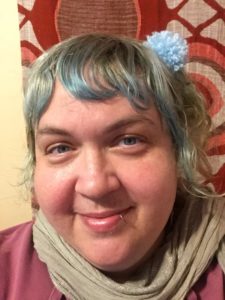 Nomy Lamm (she/they): is a musician, illustrator, voice teacher, creative coach, a kohenet/Hebrew Priestess, and the Creative Director of Sins Invalid, a disability justice based performance project. Nomy sings cosmic power ballads for the rise of the matriarchy in a band called The Beauty, and creates ritual tools for embodied Jewish feminist practice, including the Olam haBa magical Hebrew planner and the Omer Oracle deck. They live in Olympia, WA on occupied Squaxin / Nisqually / Chehalis land with their partner Lisa and their animal companions Dandelion, Momma, Calendula and Chanukah.
Nomy Lamm (she/they): is a musician, illustrator, voice teacher, creative coach, a kohenet/Hebrew Priestess, and the Creative Director of Sins Invalid, a disability justice based performance project. Nomy sings cosmic power ballads for the rise of the matriarchy in a band called The Beauty, and creates ritual tools for embodied Jewish feminist practice, including the Olam haBa magical Hebrew planner and the Omer Oracle deck. They live in Olympia, WA on occupied Squaxin / Nisqually / Chehalis land with their partner Lisa and their animal companions Dandelion, Momma, Calendula and Chanukah.
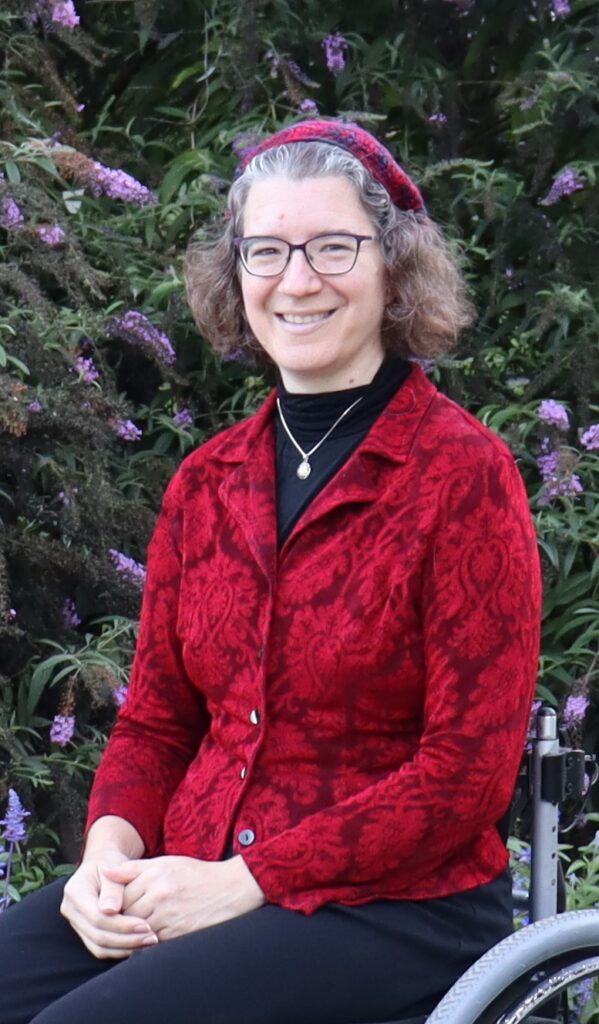 Dr Julia Watts Belser, is a rabbi, scholar, and spiritual teacher who works at the intersections of disability studies, queer feminist Jewish ethics, and environmental justice. Maria Palacios is a disability activist, poet, artist, and author.
Dr Julia Watts Belser, is a rabbi, scholar, and spiritual teacher who works at the intersections of disability studies, queer feminist Jewish ethics, and environmental justice. Maria Palacios is a disability activist, poet, artist, and author.
